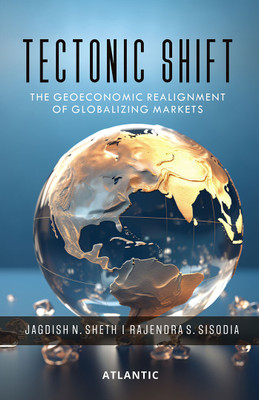Tectonic Shift: The Geoeconomic Realignment of Globalizing Markets(Hardcover, Jagdish N. Sheth,Rajendra S. Sisodia)
Quick Overview
Product Price Comparison
Tectonic Shift: The Geoeconomic Realignment of Globalizing Markets presents an optimistic and practical view of the future that is predicated on strengthened relationships between developed and developing countries that are based not on charity, but on enlightened self-interest. The best way forward (i.e., the one that will generate the most prosperity for the largest number of people) lies in such ŌĆśNorth-SouthŌĆÖ integration. Moreover, this is most likely to be successful in the context of regional integration (though in some cases, countries that offer a strong strategic fit but are geographically distant will join a regional economic union), and will result in the formation of three huge regional economies bound together with the glue of free trade, a common currency, shared values, developmental priorities and institutions. This book represents a continuation of the journey started by Daniel Yergin and Joseph Stanislaw's masterful recounting of the economic history of the 20th century titled Commanding Heights. The book offers a plausible scenario for how the global economy is likely to evolve in the first few decades of the 21st century. In many ways explicating how the 20th century was hijacked by ideology: Communism, Nazism, World War II, Vietnam and Korean wars and the Cold War. The 20th century was an historical aberration that witnessed, first, a US domination of the world and, second, a bifurcation of the world into two opposing camps. The 21st century, will hopefully be characterized by a much higher degree of pragmatism and more uniform distribution of power. As the world population matures and stabilizes in the 21st century, the gross domestic product (GDP) of countries will grow only slowly. Economic growth and vitality will depend more than ever on renewed growth in trade.


